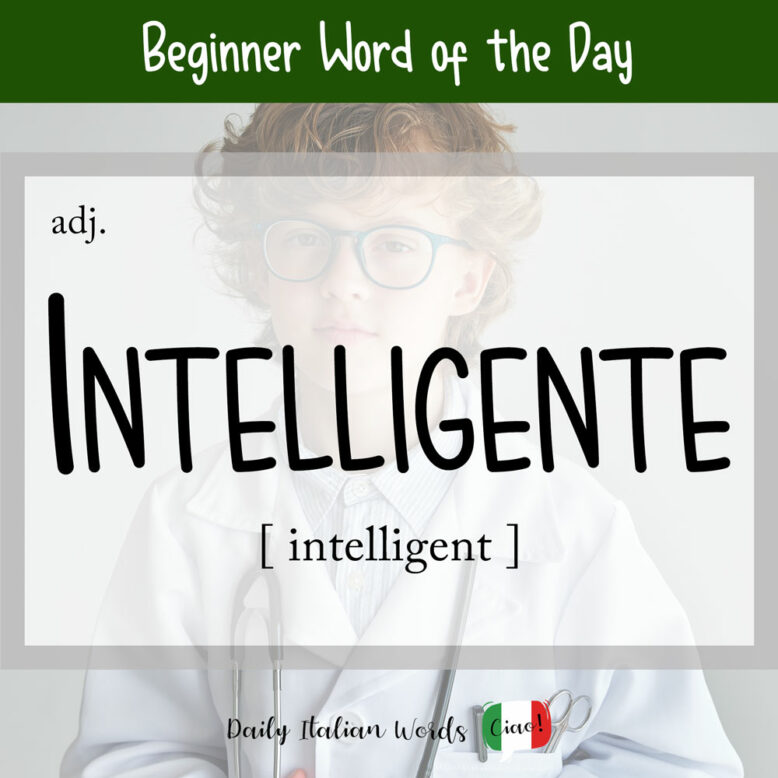The word for intelligent or smart in Italian is intelligente. Both the Italian and English can be traced back to the Latin intelligent- which means understanding.

Intelligente is the singular form of the adjective and may be used to describe both masculine and feminine subjects, whereas the plural form is intelligenti.
Carlo è un bambino molto intelligente.
Carlo is a very intelligent child.
Ci sono persone che credono di essere più intelligenti di quello che sono realmente.
There are people who believe themselves to be more intelligent than they actually are.

As in English, intelligente may denote someone’s innate intellect (e.g. uno studente intelligente = an intelligent student), or it may be used to describe something, such as a comment or act, that is carried out in an intelligent manner (e.g. una domanda intelligente = an intelligent question).
What’s more, intelligente is often used to describe the external manifestation of a person’s intelligence. For example, you can say that someone has una faccia intelligente (an intelligent face) or un’espressione intelligente (an intelligent expression).
Quel cane ha uno sguardo molto intelligente.
That dog has a very intelligent look.
Intelligente can be used for sophisticated or advanced products or technology. You can say for example una macchina intelligente (a smart machine or a smart car).
Trivia: Italians have adopted the English word for smartphone, so you won’t hear anybody saying telefono intelligente!
Some important terms related to intelligente include:
- intelligenza = intelligence
- intelligenza artificiale = artificial intelligence
- intelligentemente = intelligently
- intellettuale = intellectual

In Italian, you can add the suffixes -one (masculine) / -ona (feminine) to the end of verbs and adjectives to create nouns meaning “one who often does” or “one who is characterised by”. A good example is the word intelligentone (and the feminine equivalent intelligentona) meaning smarty-pants.
Heather Broster is a graduate with honours in linguistics from the University of Western Ontario. She is an aspiring polyglot, proficient in English and Italian, as well as Japanese, Welsh, and French to varying degrees of fluency. Originally from Toronto, Heather has resided in various countries, notably Italy for a period of six years. Her primary focus lies in the fields of language acquisition, education, and bilingual instruction.


